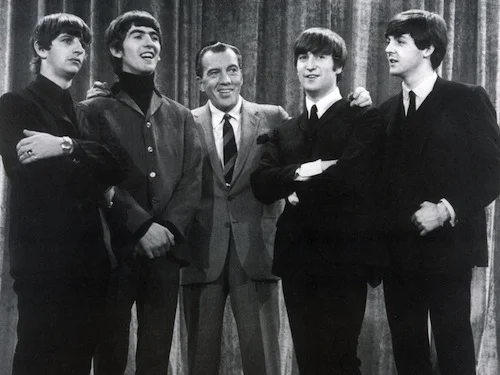 We lived under the same roof for less than two months. The short time gave us many answers to the question, “What makes a house a home?” Shared meals and laughter became the foundation. Courage to tell each other our hard life experiences formed a beautiful entryway. Talking while cooking and cleaning side by side put up an internal framework that remains.
We lived under the same roof for less than two months. The short time gave us many answers to the question, “What makes a house a home?” Shared meals and laughter became the foundation. Courage to tell each other our hard life experiences formed a beautiful entryway. Talking while cooking and cleaning side by side put up an internal framework that remains.
 Twelve years ago in the little gift shop of St. Mary’s church in Oxford, I found a tray of laminated prayer cards. Assuming “An Ancient Country Prayer” would be about sun and harvest, I was surprised and delighted to read the first line:
Twelve years ago in the little gift shop of St. Mary’s church in Oxford, I found a tray of laminated prayer cards. Assuming “An Ancient Country Prayer” would be about sun and harvest, I was surprised and delighted to read the first line:
Give me good digestion, Lord, and also something to digest . . .
I pounced on it happily — here was a prayer I could relate to. I would not know then, as I drew out my coins, that this prayer card would go with me for the next years to other countries, into married life, into motherhood.
 At some point, I notice an anomaly in the sweater — the consequence of knitting while watching TV. I’ve messed up the pattern, miscounted. I consider the damage. How much work would it take to undo four rows of stitches and re-knit? How noticeable is it? In the end, stitch by stitch, I remove the rows. I’ve become quite accomplished at this work of unknitting, even with complicated slipstitches, increases and cables. The piece won’t be perfect (how else would they recognize it as hand-knit?), but I want it to be beautiful.
At some point, I notice an anomaly in the sweater — the consequence of knitting while watching TV. I’ve messed up the pattern, miscounted. I consider the damage. How much work would it take to undo four rows of stitches and re-knit? How noticeable is it? In the end, stitch by stitch, I remove the rows. I’ve become quite accomplished at this work of unknitting, even with complicated slipstitches, increases and cables. The piece won’t be perfect (how else would they recognize it as hand-knit?), but I want it to be beautiful.
 Philip woke at eight the next morning and started the percolator. Around nine we decided that we wanted to treat everyone to coffee in their rooms, so I assembled the trays with pretty mugs and sprigs of holly and cream and sugar and, each carrying one, we ascended the stairs, grinning at one another like children. We delivered their coffee with bright greetings, and Philip started the fires in their rooms so that they could relax in bed for a while before breakfast. I told them we would eat in an hour: already the sacrosanct aromas of my mother’s Christmas Morning Breakfast Casserole, reserved for only the most special of occasions, was filling the air with invitation.
Philip woke at eight the next morning and started the percolator. Around nine we decided that we wanted to treat everyone to coffee in their rooms, so I assembled the trays with pretty mugs and sprigs of holly and cream and sugar and, each carrying one, we ascended the stairs, grinning at one another like children. We delivered their coffee with bright greetings, and Philip started the fires in their rooms so that they could relax in bed for a while before breakfast. I told them we would eat in an hour: already the sacrosanct aromas of my mother’s Christmas Morning Breakfast Casserole, reserved for only the most special of occasions, was filling the air with invitation.
 We love the idea of a room full of shelves, but surely the books want to be read, to be out in the world making connections. Do they whisper to the reader who gets lost between the shelves and then between the pages? And do the readers whisper back with each turn of the page? As a reader myself, I know how books have changed me. So likewise,does a book come back to the shelf somehow changed by the person who read it?
We love the idea of a room full of shelves, but surely the books want to be read, to be out in the world making connections. Do they whisper to the reader who gets lost between the shelves and then between the pages? And do the readers whisper back with each turn of the page? As a reader myself, I know how books have changed me. So likewise,does a book come back to the shelf somehow changed by the person who read it?
I have to believe that it does. A book that has been read and loved by a long chain of readers must carry that love with it until it simply falls apart.
 Fruitcake lovers tend to be quiet whereas fruitcake haters tend to be loud, but most fruitcake haters I know have never had good fruitcake (and some have never had any fruitcake at all). So it seems that makers of fruitcake either must either hide their wares under a bushel (no!) or share them with evangelical fervor. Thus, I have decided to become an evangelist for fruitcake. Because everyone (especially my brother-in-law who requires more prayer, for he has yet to refrain from making disparaging remarks while the rest of us groan and ask for more) needs to know how wonderful it is.
Fruitcake lovers tend to be quiet whereas fruitcake haters tend to be loud, but most fruitcake haters I know have never had good fruitcake (and some have never had any fruitcake at all). So it seems that makers of fruitcake either must either hide their wares under a bushel (no!) or share them with evangelical fervor. Thus, I have decided to become an evangelist for fruitcake. Because everyone (especially my brother-in-law who requires more prayer, for he has yet to refrain from making disparaging remarks while the rest of us groan and ask for more) needs to know how wonderful it is.
 I’ve been sleeping in her bed with her, nervous at listening to her uneven breathing and feeling her body radiate heat, but more nervous to be in the other room. Throughout the night, she says, “Mama?” and asks for water, more blankets, fewer blankets, or the ice pack that fell on the floor. She is constantly aware of my presence. “Mama?” I love to hear her voice asking for me, assuming I am there. Most of all, I love her arm reaching to me in her sleep, not needing anything. Reaching because, even as she dreams, she dreams of me.
I’ve been sleeping in her bed with her, nervous at listening to her uneven breathing and feeling her body radiate heat, but more nervous to be in the other room. Throughout the night, she says, “Mama?” and asks for water, more blankets, fewer blankets, or the ice pack that fell on the floor. She is constantly aware of my presence. “Mama?” I love to hear her voice asking for me, assuming I am there. Most of all, I love her arm reaching to me in her sleep, not needing anything. Reaching because, even as she dreams, she dreams of me.
 My work is wrapped up in the self I knock against every ordinary day. It is in my home. It is there with me on vacation. It is in breathing and being; in worrying less and wondering more; in the act of loving (or cooking or cleaning or playing or resting), rather than in analyzing how well I’m doing it. Don’t get me wrong; my work is hard work (as is yours). But it is very simple. It is right in front of me.
My work is wrapped up in the self I knock against every ordinary day. It is in my home. It is there with me on vacation. It is in breathing and being; in worrying less and wondering more; in the act of loving (or cooking or cleaning or playing or resting), rather than in analyzing how well I’m doing it. Don’t get me wrong; my work is hard work (as is yours). But it is very simple. It is right in front of me.
Becoming a Songwriter, Part 2
The power of place cannot be underestimated. This is why artists leave one place and move to another. The new place likely comes with a story—a story that tells the artist, “If you want to be a songwriter, this is the place to do it. This is the place that others have done the very thing you want to do. This is a place rich in stories — it’s a history-making place.” When young songwriters tell me they are moving to Nashville, it’s not because of the Tennessee Titans or our famous meat and three cuisine.
Places, and the people that inhabit places, are never neutral in what they give birth to. People and place are meaning makers.
Becoming a Songwriter, Part 1
I think this is the way it must be. Every musical child born into the music of a people and place must also hear and see music done by others outside your immediate circle. There must be some heroic figure (and hopefully several) that inspire the young musical person to imagine himself or herself doing that thing, or something similar — essentially, making something. Saying in your energized imagination and will, “I want to make that. I will make that.”
 When my boys ask me on the way to church why I like the Liturgy I tell them, “Because it’s beautiful.” I ask them to look for that beauty, not just now, but always, even one moment of that beauty in the middle of the noise, in the middle of the boredom. I tell them about the wind turbines on either side of I-65 near Lafayette, how on a long journey it’s important that we observe those small moments of beauty, though we might be tired or bored or hungry or distracted.
When my boys ask me on the way to church why I like the Liturgy I tell them, “Because it’s beautiful.” I ask them to look for that beauty, not just now, but always, even one moment of that beauty in the middle of the noise, in the middle of the boredom. I tell them about the wind turbines on either side of I-65 near Lafayette, how on a long journey it’s important that we observe those small moments of beauty, though we might be tired or bored or hungry or distracted.
 Where I once thought of my vocation or calling in somewhat linear, marked-trailhead sort of terms — hoping to discern the all-inclusive single occupation best matched to my personality profile, or to divinely sense the most intuitive, singularly direct path for making a positive difference in the world — my experience has instead felt more like wandering-with-intention toward the next little rock pile where I inevitably see more of the terrain that lies before me.
Where I once thought of my vocation or calling in somewhat linear, marked-trailhead sort of terms — hoping to discern the all-inclusive single occupation best matched to my personality profile, or to divinely sense the most intuitive, singularly direct path for making a positive difference in the world — my experience has instead felt more like wandering-with-intention toward the next little rock pile where I inevitably see more of the terrain that lies before me.
The Virtue of Staring
The skill of intentional staring has been made obsolete by our fast-paced society. There is so much new to see that stopping to stare can be an almost frightening experience. After all, we just might miss something novel and viral — the topic of every chat room and all our Facebook friends. Like so many skills from the past, sustained staring will have to be recovered just as slow food, reading aloud, unhurried conversation, and honoring rest as essential to creativity, personhood, and good work are being rediscovered by so many in a generation weary of the empty promises of modernity.
 Silence a man’s inner dialogue and take away the filter through which he runs what he chooses to say and what he keeps inside, and what comes out of him will likely fall closer to the truth than to fiction. If this is true, then it is in me to belittle kindness and glare at beauty. It is in me to tell the ones who love me most to go away. It is in me to reject the advances of grace. And it is true. I know it is.
Silence a man’s inner dialogue and take away the filter through which he runs what he chooses to say and what he keeps inside, and what comes out of him will likely fall closer to the truth than to fiction. If this is true, then it is in me to belittle kindness and glare at beauty. It is in me to tell the ones who love me most to go away. It is in me to reject the advances of grace. And it is true. I know it is.
 Joy can be found in the most unexpected places. In the hurting (or rejoicing) co-worker down the hall, in the redemption offered by a hard conversation with a friend, and in the painful void that accompanies loneliness. Every day and every season bring a unique composition of light and shadow. Every day and every season offer new opportunities to experience joy.
Joy can be found in the most unexpected places. In the hurting (or rejoicing) co-worker down the hall, in the redemption offered by a hard conversation with a friend, and in the painful void that accompanies loneliness. Every day and every season bring a unique composition of light and shadow. Every day and every season offer new opportunities to experience joy.
Taking the Long View in a Life of Hospitality
When visitors come into the well-supplied kitchen of our home, The Art House, with its 60” Wolf range and side-by-side refrigerators, they often rightly ask, “Do you like to cook?” I almost always stumble over a simple yes or no answer. After living most of my adult life feeding hungry people, I am very interested in food and cooking. But the interest has come alongside the necessity. Cooking has been unavoidable, a skill developed with use. Thankfully, I was inspired early on to see the kitchen as a wholly creative and meaningful place to work, so I have leaned into all the need with an imagination formed by those ideas.
With Bread
Company. Campaign. Champagne. Champion. Companion. Familiar words that sound so alike because they all spring from the same medieval French and Latin roots. “Com” = “with” and “Pan” = “bread.” “Camp” (champ) = “open country or field.” These words are cousins in etymology and function. To be a companion is literally to share bread with someone. To share bread with someone is to keep their good company. To keep their good company is to be their champion. And to be their champion is to be their defender, to walk among them and eat with them.
 For every moment I paid attention, I wonder how many moments I missed — not just with the children around me, but also with the adults I interact with who might have needed an encouraging word or simply a friend who would listen. Maybe being a hero doesn’t require superhuman abilities, but simply the willingness to pause and pay attention and listen.
For every moment I paid attention, I wonder how many moments I missed — not just with the children around me, but also with the adults I interact with who might have needed an encouraging word or simply a friend who would listen. Maybe being a hero doesn’t require superhuman abilities, but simply the willingness to pause and pay attention and listen.
 Artists and gardeners aren't the only ones who should be creating or coaxing life. I've started six urban gardens in three different cities and I can't stress how essential it is to co-create with those whom you want to build bonds. It is incarnational and it is transformational. It works across languages and ages. Three sunflower seeds can be enough. A tomato plant is even better. A public art project is outstanding.
Artists and gardeners aren't the only ones who should be creating or coaxing life. I've started six urban gardens in three different cities and I can't stress how essential it is to co-create with those whom you want to build bonds. It is incarnational and it is transformational. It works across languages and ages. Three sunflower seeds can be enough. A tomato plant is even better. A public art project is outstanding.
 There, floating with these beautiful newfound sisters in the cool, emerald green water of the Frio River, amongst the tiny flickering fish and the long blades of grass, I felt my heart settle into the deep quiet. I didn’t have an ongoing grocery list running through my mind. I wasn’t worried about the kids and whether or not my husband had remembered the sunscreen. I did not even have to fight the insecurities that normally gnaw at me about my body in a swimsuit. No, for the first time in a great long while, I let go.
There, floating with these beautiful newfound sisters in the cool, emerald green water of the Frio River, amongst the tiny flickering fish and the long blades of grass, I felt my heart settle into the deep quiet. I didn’t have an ongoing grocery list running through my mind. I wasn’t worried about the kids and whether or not my husband had remembered the sunscreen. I did not even have to fight the insecurities that normally gnaw at me about my body in a swimsuit. No, for the first time in a great long while, I let go.



















